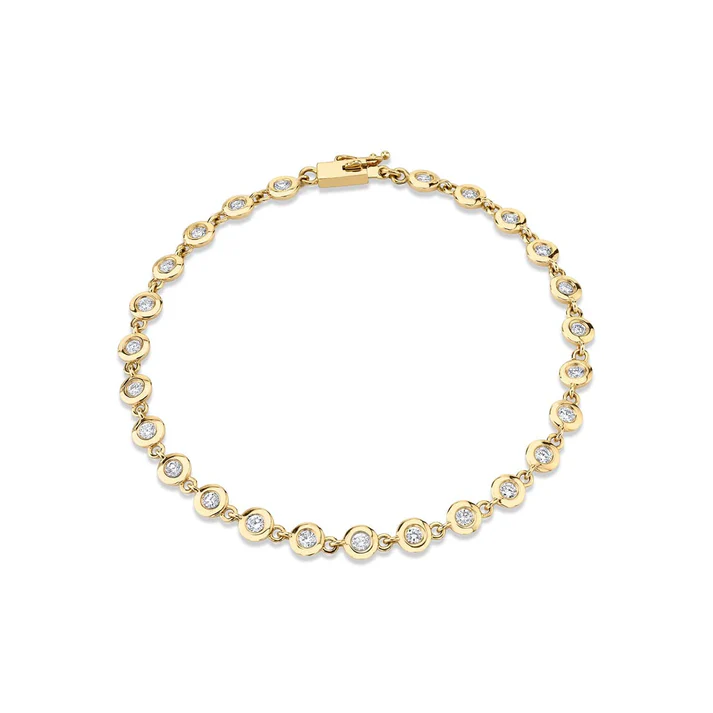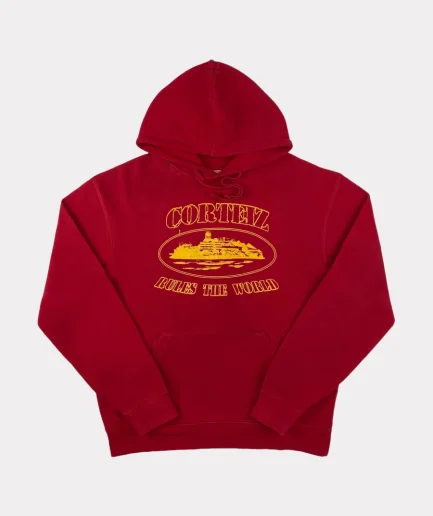The Ultimate Guide to Choosing the Perfect Tennis Bracelet
A tennis bracelet is a timeless piece of jewelry that combines elegance, versatility, and sophistication. Whether you are purchasing one as a gift or adding it to your personal collection, choosing the perfect tennis bracelet requires a good understanding of its design, materials, and features. In this comprehensive guide, we’ll explore everything you need to know to find a tennis bracelet that matches your style and stands the test of time.
1. What Is a Tennis Bracelet?
A tennis bracelet is a flexible, symmetrical band of small, individually set gemstones—typically diamonds—linked together in a continuous line. Its name originates from a famous incident during the 1987 U.S. Open when tennis player Chris Evert’s diamond bracelet broke mid-match, prompting a pause to retrieve it. Since then, this style of bracelet has been popularly known as a tennis bracelet.
2. Why Choose a Tennis Bracelet?
The tennis bracelet is a versatile accessory, making it a perfect choice for any occasion. Here are some reasons why it stands out:
- Timeless Elegance: Its simple yet stunning design never goes out of fashion.
- Versatility: Pairs well with casual outfits, formal wear, and even athletic attire.
- Symbolic Value: Often gifted as a sign of love, commitment, or achievement.
3. Key Factors to Consider When Choosing a Tennis Bracelet
a. Material
The bracelet’s metal plays a crucial role in its appearance and durability. Popular options include:
- White Gold: A modern and sleek choice that enhances the brilliance of diamonds.
- Yellow Gold: Classic and traditional, offering a warm glow.
- Rose Gold: Romantic and trendy, perfect for a unique look.
- Platinum: Durable and hypoallergenic, ideal for those with sensitive skin.
- Sterling Silver: A budget-friendly option with a polished finish.
b. Gemstone
While diamonds are the most popular choice, other gemstones can add a colorful twist:
- Diamonds: Classic and enduring, available in various cuts and carat weights.
- Sapphires: For a pop of deep blue or other vibrant colors.
- Rubies and Emeralds: Offer bold and luxurious alternatives.
- Lab-Grown Stones: A sustainable and cost-effective option with the same brilliance as natural stones.
c. Setting Style
The setting determines how the stones are placed on the bracelet. Common styles include:
- Prong Setting: Classic and secure, allowing maximum light to pass through the stones.
- Bezel Setting: Encircles the stone for added protection.
- Channel Setting: Stones are set closely together in a groove, offering a seamless look.
d. Length and Fit
The bracelet should fit snugly but not tightly around your wrist. To ensure the perfect fit:
- Measure your wrist and add about half an inch for comfort.
- Look for bracelets with adjustable clasps if you’re unsure of the size.
e. Clasp Type
A secure clasp is essential to prevent loss. Common clasp styles include:
- Lobster Clasp: Durable and easy to use.
- Box Clasp with Safety Latch: Offers added security, especially for high-value pieces.
- Slide Lock Clasp: Provides a sleek and seamless design.
4. How to Match a Tennis Bracelet to Your Style
a. Everyday Elegance
For a subtle and classic look, opt for a single-row diamond tennis bracelet in white or yellow gold. These pieces are versatile and perfect for daily wear.
b. Glamorous Statement
If you want to make a bold impression, consider a multi-row bracelet or one featuring larger stones. Gemstone tennis bracelets with sapphires, rubies, or emeralds can also elevate your outfit.
c. Layering Trend
Layering multiple bracelets is a modern trend that adds depth to your look. Mix and match metals and gemstones for a personalized style.
5. Budget Considerations
Tennis bracelets come in a wide price range, depending on factors like metal, gemstone quality, and design complexity. Here’s how to balance quality and affordability:
- Choose lab-grown diamonds or gemstones for a more budget-friendly yet high-quality option.
- Opt for sterling silver instead of platinum or gold for a more affordable metal choice.
- Consider smaller carat weights or simpler designs to reduce costs without compromising elegance.
6. Where to Buy the Perfect Tennis Bracelet
Shopping from a reputable jeweler ensures quality and authenticity. Here are some popular options:
- Luxury Retailers: Brands like Tiffany & Co. and Cartier offer high-end, timeless designs.
- Online Stores: Platforms like Blue Nile, James Allen, and Brilliant Earth provide a wide selection with customization options.
- Local Jewelers: Support small businesses and explore unique, handcrafted pieces.
- Vintage Shops: Find one-of-a-kind tennis bracelets with historical charm.
7. How to Care for Your Tennis Bracelet
Proper maintenance keeps your bracelet looking its best for years. Follow these tips:
- Clean Regularly: Use a soft cloth and mild soapy water to clean the stones and metal.
- Avoid Harsh Chemicals: Remove the bracelet before using cleaning agents or swimming in chlorinated water.
- Store Properly: Keep your bracelet in a soft pouch or jewelry box to prevent scratches.
- Inspect for Damage: Periodically check for loose stones or weakened clasps, and have repairs done by a professional jeweler.
8. Trends in Tennis Bracelets for 2025
While the tennis bracelet is a classic, new trends emerge to add a modern touch:
- Mixed Metals: Combining gold, silver, and rose gold for a contemporary look.
- Colored Gemstones: Adding vibrant stones like pink sapphires or green emeralds for a unique twist.
- Minimalist Designs: Sleek, single-row bracelets with smaller stones for a more understated style.
Conclusion: Your Perfect Tennis Bracelet Awaits
The tennis bracelet is a timeless accessory that adds elegance to any outfit. By considering factors like material, gemstone quality, and personal style, you can find the perfect piece to suit your needs. Whether it’s a gift for a loved one or a treat for yourself, a tennis bracelet is a beautiful investment that will be cherished for years to come.














Post Comment